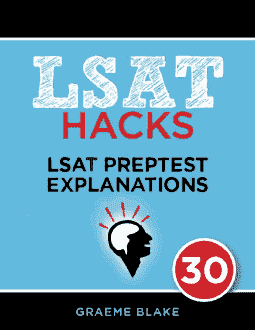QUESTION TEXT: The new agriculture bill will almost surely fail to…
QUESTION TYPE: Strengthen
CONCLUSION: The new bill will almost surely fail to pass.
REASONING: The leaders of all major parties have stated that they oppose it.
ANALYSIS: We have no evidence about what happens to bills that lack support from all major party leaders. Maybe bills still pass because enough party members support them.
Only A tells us what happens when bills lack support from party leaders.
___________
- CORRECT. This helps. If no leaders support a bill then the bill usually doesn’t pass.
- This sounds tempting. But it’s possible that some bills with no support did become law. This answer choice is only telling us something about bills that failed but it says nothing about bills that succeed.
- That doesn’t tell us what happens if leaders don’t support a bill.
- This doesn’t help us figure out if bills have support from nobody.
- But it’s still possible that bills without the support of any leader could become law.


Hi Graeme,
I have a quick question on your above reasoning in favor of (A) v (E)
(E) the reason given here is that it’s possible for bill’s without support to pass.
(A) does strengthen the reasoning by providing stating that if no leaders support the bill, it will usually not pass. I agree, but likewise with (E) it is still possible for bill’s without support to pass.
Why then is (A) preferable over (E)? They both equally strengthen from my perspective.
thank you,
Tom
A actually strengthens the conclusion by showing the bill may fail.
In E, it’s possible that *every* proposed bill passes. E gives no evidence for how a bill can fail. Yes, most bills had major party support. But it’s possible that all the bills without party support also passed.